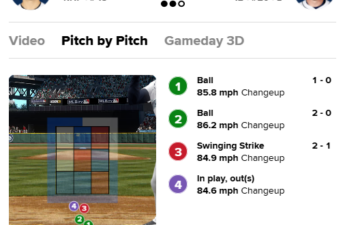Peace
So it looks, thankfully, like the Olympic Ossetia War may be over almost as quickly as it started. If you’ve been under a rock for a week (or in Vegas, as I was for the bulk of the war), Georgia invaded the breakaway republic of South Ossetia as the Olympics opened. Russia invaded South Ossetia to drive the Georgians out, then kept going for a ways, stopping short of the capital in time for a ceasefire.
Sound familiar? I’ve already made much of the parallels between this Georgia-South Ossetia-Russia scenario and the Iraq-Kuwait-USA scenario circa the early 1990’s. It took a while longer for the whole thing to unfold in the prior case, but then again, it was the USA and not Saudi Arabia that went in to “liberate” Kuwait. The fact that no one in the US media or perspective has labeled this recent struggle as Russia’s “liberation” of South Ossetia is frankly baffling to me. I thought our country believed in self-determination. Well, no I didn’t really think that. I’ve always known that we were hypocrites.
But the hypocrisy goes deeper than recent history. The more compelling parallel, it occurs to me, is the Mexican-American War, with Texas playing the role of South Ossetia. The majority of Texas wanted to leave Mexico and they declared a shaky and unsound independence. Unable to sustain real independence, they floated between Mexico and the US, leaning toward the US. When the US finally tried to absorb Texas officially, Mexico went in to crack down on the renegade province. And the US quickly reconquered Texas and penetrated the aggressor, this time going all the way to Mexico City and taking the Congo California, Arizona, and New Mexico as a penalty.
Now I’m not on the side of the US in either of these examples, or Russia currently. Nor am I on the side of Mexico, Iraq, or Georgia. Frankly, all these people are committing horrible acts by using violence to resolve their differences. If people want to be free, let ’em go. You’re not going to get very far by holding people against their will, be it in a prison, a camp, or a country.
What I do find interesting, however, is how prevalent the principle of defending a weak breakaway republic has been in US policy and yet how blatantly the US has sided with Georgia. It doesn’t surprise me, as stated – I expect the US to be inconsistent in an effort to only defend its friends and partners, no matter how atrocious their acts may be. I guess what surprises me most is how much the media have let the US policy advocates get away with this perspective. Not a soul has presented the counter-arguments about Russia defending a weaker (interestingly, ethnically Iranian) group against an invasive force. On the contrary, they’ve dredged up Cold War rhetoric and comparisons to the ’68 crackdown on Czechoslovakia. This is just preposterous. If you’re going to believe in the Mexican-American War and Gulf War I, you have to side with Russia. It’s just logic.
Regardless, it very fortunately doesn’t seem to matter any more what side one’s on, because this conflict is over. It looked really scary for awhile, but everyone authentically seems to care more about peace than ego. Which is mind-boggling, but may give us some reason for…
Hope
Not only am I elated to see the end of this war, I’m also heartened by articles like this one, talkin’ ’bout my gen-eration. I know that I certainly feel like my generation cares more about being socially conscious, environmentally friendly, and actually doing good instead of evil, but it’s nice to see confirmation.
Obviously, though (you knew I wouldn’t stay optimistic for long), I am highly concerned by how this article seems to indicate that lip service is more or less enough to lure my gullible generation into signing on the dotted line. Yes, there’s a section entitled “More than just talk”, but if your company is destroying people’s lives on one hand and then turning around and giving a token amount of money back, it’s still mostly doing evil. Here’s a good indication if this is the case: the word company. This word means that the bottom line overrides other concerns, even if the bottom line can offer light dusting to the community. Usually the only reason it sprinkles this dusting is to advertise, to make people feel better about the company in the first place. Don’t be duped, fellow Y’s/Millennials (I still prefer Y because of the homophonic implication of my favorite three-letter word), it’s just a token. If you have to do a day job, best to put it directly into a non-profit, where there is no bottom line really.
But hey, if everyone is going into these businesses with these attitudes… and can somehow manage to maintain them while working in a company for decades (a gargantuan if), then maybe there’ll be some real change in, uh, 30 years. Hm. That’s a little hope, right? But the fact of the matter is that things are going to need to change big time before then. Fact? Perhaps I meant…
Truth
Which is actually going to be a section title for an update about fiction. Contradictory, you say? The old saying says that truth is stranger than fiction, but I’d actually like to coin that fiction is truer than truth. Before you start lumping me in with a Steven Colbert “truthiness” spoof, hear me out. This will explain why 98% of what I read is fiction and why I aspire to be a writer of same rather than non-.
The thing about non-fiction is that it’s trying too hard. The truth (!) of the matter is that everything that one writes, thinks, does is laden in one’s perspective. There’s no helping it or getting around it. Truth may ultimately be vision without perspective, but no one is ever able (in this species in this era in history) to divorce themselves entirely from their own vantage point. So attempts to be objective with a single or group voice are always going to fall short. One is always trying to prove a point, find an eternal truth, even just tell a story about something that happened to someone else. But it’s never (ever) 100% true. It’s fictionalized, cast in a certain light, omits some details, even if they’re only the details that physically can’t be attained in the process of researching the story.
None of these weaknesses of non-fiction would really be a problem if non-fiction called itself “semi-fiction” or “half-truth”. The real problem that non-fiction has is its branding itself as objective fact/truth. By claiming that something inherently biased is indeed objective, non-fiction sets itself up as misrepresentation and disaster, often misleading people into believing it, accepting it whole cloth. When of course, as we’ve established, it needs salt.
But is hope for truth lost? Of course not, because we have fiction. Fiction makes no bones about its factual content – it’s not even trying to be true. But to be believable, to be functional, to resonate with any reader, fiction must establish itself within a consistent and real framework. People are constantly analyzing and evaluating it for its reality, thus holding it already to a higher standard than non-fiction.
But more compellingly, fiction is freed from all constraints, so it can actually tell its story completely, regardless of what someone may say or think or feel or critique. And this liberation allows it to get at a more fundamental truth about the world, because it’s much less self-conscious. It’s not trying to recenter itself in some objectivity or reality, but simply trying to convey a feeling, a presence, a story, a reality of some sort. And this is really the only way to tell the truth. At least more fundamental truths, about how people really are, about what they go through, about what is important to humanity.
With that off my chest, this section was supposed to be about my proclivity toward absurdly long books this year. I’m close to completing Gravity’s Rainbow, Thomas Pynchon’s WWII treatise that feels more like work than any sort of recreation. I’ve never delved into Pynchon, despite being given the absurdly short The Crying of Lot 49 at some point in college, but he was compared to David Foster Wallace (actually vice versa), so I figured once I ran out of Wallace fiction, it was time to jump in. Having already read Infinite Jest (1,049 pages), The Brothers Karamazov (711 pages), and The Wind-Up Bird Chronicle (607 pages), I was not concerned about the 760 dense pages of this one. (Parenthetically, this is not me bragging so much as trying to explain why I’ve only read nine books this year.)
Boy, was I wrong. Gravity’s Rainbow is about as inaccessible and oblique as a book can get and still be in any way readable. While it’s an interesting challenge at times and authentically hilarious when one least expects it, it mostly leaves me apathetic. Part of my disappointment is surely derived from having read the first paragraph in a bookstore and being intrigued by what seemed like an apocalyptic plot. Instead, it was just another WWII retread. And I understand how WWII was confused for the apocalypse by the generation that lived it; I even understand why. But it’s less interesting now, it’s overplayed, and it clouds our vision of the future.
I mean, this may not be entirely fair. I don’t know where it ends. There could be a whole bunch of highly redeeming endings for Gravity’s Rainbow. Less than a hundred pages to go and it’s not looking stellar. But if Slothrop ends up in a GE lab with the five people controlling everything and all the other victims lined up… maybe. I’ve made a lifetime of reading books and watching movies out of hoping for crescendic endings that perfectly conveyed my perspective to all, only to have hopes dashed against the rocks 98% of the time.
Deus ex crapola.
Conclusion
I will talk about Vegas at some point, wherein I spent 72 hours (59 of them awake). I will talk about struggling through the ennui of life in the late summer of my day job world (because that’s something I haven’t talked about enough on this blog). I will talk more about the economic situation of a country that still doesn’t know it’s about to collapse, about the excitement and ambivalence of being here to watch it crumble.
But when the opportunity presented itself to filter today’s tidbits through the lens of my old phrase of the three big ideals, how could I pass it up? When I still haven’t decided whether to go to my 10-year high school reunion, why wouldn’t I label a post as I labeled my senior page in the yearbook supplement?
I think my world today can be summed up as follows:
“I’m thinking of going.”


